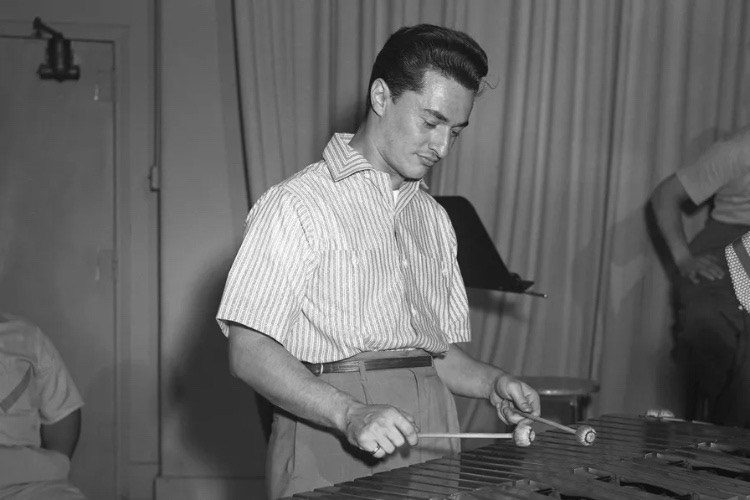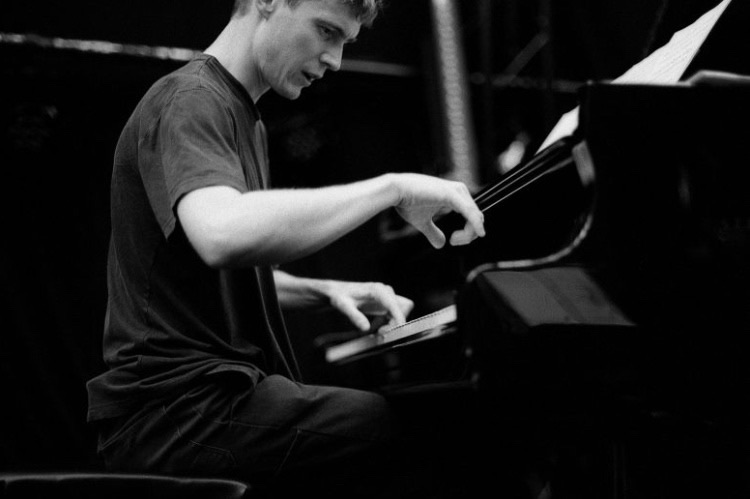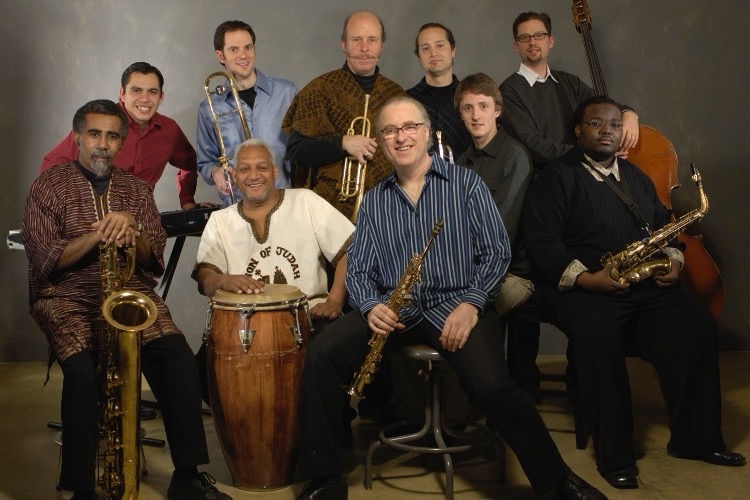Jazz Master: A Conversation with Terry Gibbs (Part Two)
We continue our conversation with Terry Gibbs (read part one here), with a discussion of the intersection of Jewish music and jazz, Alice Coltrane, the meaning of music, and more.
PostGenre: Jumping ahead a bit – though we will go back – there are stories of how Charlie Parker played at bar mitzvahs. You have a record- Terry Gibbs Plays Jewish Melodies in Jazztime (Mercury, 1963) – that explores the intersection between jazz and traditional Jewish music. When you were putting that album together, did you find it easy to meld ideas from Jewish music and jazz?
Terry Gibbs: Well, I grew up with Jewish music. My father was a Jewish bandleader. I would play those songs with him growing up, but my brother was the greatest Jewish drummer. I learned how to play from really good Jewish drummers. But I also learned the music that I love. I loved playing in minor keys.
Recording that album was probably one of the funniest dates. We had just worked opposite John Coltrane for about three weeks. I had a girl named Alice [McLeod] playing piano in my band. I introduced her to John. They fell in love and later, she became Alice Coltrane. But at that time we were doing this date – she was Black and I was white and Jewish – she stole the date by how well she could play our music influenced by Jewish music. She had been listening a lot to John’s music over those three weeks.
But the funniest thing was Quincy Jones. He was what they call the A&R man. He produced the record. The day we recorded, he showed up wearing a yarmulke on his head and a tallis around his shoulders! Then, in the middle of the day, Lalo Shifrin brought me a box of Matzah. My brother, with his Jewish band played incredibly, but everyone flipped out over Alice.
PG: When Alice was in your band, you were mostly playing bebop. Did you have any sense of the direction she would ultimately go in musically, in terms of incorporating Eastern ideas and avant-garde influences?
TG: When she was with me, she was a bebop piano player. I hired only bebop musicians because that’s the music I love. Being a bandleader, I’m fortunate that I’m in charge. I hire who I want. I always hire people I hope will one day leave my band and start their own band. I learned a long time ago that if you want to have a happy group, pay the other musicians a decent salary and let them play. You hire them because you like the way they play, and that’s why I was with my musicians.
PG: Is that why so many musicians from the Dream Band went off and did incredible work on their own? The band had Mel Lewis, Bob Brookmeyer, Al Cohn, and Bill Holman, to name a few.
TG: Oh, yeah. Well, Mel is on all seven Dream Band albums. So was [trumpeter] Conte Candoli. All the great jazz players in the band stayed there because the band was something else. We didn’t believe it when it all happened. By the time I moved to California, big bands were on the way out. Dave Brubeck was making just as much money with his quartet as Count Basie was for his big band. No one was coming out with big bands. They started quartets and sextets.
After I moved to California, I went down to the union. Bill Holman, one of the greatest arrangers, had a rehearsal band. He would write arrangements, and they would rehearse down at the union. There was no place to play. Same thing with Med Flory. And, so, after I did my record with the Dream Band.
PG: In another interview, you indicated you particularly love live recordings. Vol. 7, The Lost Tapes is a live recording but you have also recorded the band in the studio. What do you enjoy most about making live recordings?
TG: I don’t want to have playbacks because I never like what I play when I hear it. What I normally did, especially with the big band, is that we would get the music and play through it. We would play the club for six days. We would rehearse for three days before then, and then we would perform for six days. On the last day, we would record. You don’t know how the recording comes out, you just play. And then I didn’t listen to [the recording] for a while. Once I did, I went back and worked with the engineer.
For my last album, 92 Years Young [: Jammin’ at the Gibbs House (Whaling City, 2017], we recorded at my house. The producer, Neal Weiss, had been after me to record an album for years. He recorded Gerry about eleven times, and four or five of Gerry’s albums went to number one [in the jazz charts]. Gerry was visiting him one day and was working on a tribute to the big band. Neal asked Gerry to get me on the phone, and he asked me to record with him. I told him I would but wasn’t going into the studio and putting on earphones with each musician in a different room. I told him we could do it, but it needed to be a jam session at my house. He asked me what we were going to play, and I told him I hadn’t the slightest idea. I’d just call out a tune, and if we all knew it, we would play it. We’d just play, and whatever came out came out.
Being ninety-one at the time we recorded, Neal figured I was old and would get tired. I had retired about a year before that. So, he hired a guy to record for four days. Over those four days, we recorded thirty-four tunes. It was hard picking out which songs to put on the record because they were all fun.
PG: And then jumping to now, you discovered Vol. 7, The Lost Tapes by accident. The recording came from some files you found earlier this year on Gerry’s computer. Vol. 6: One More Time (Whaling City, 2002) was also a surprise find as you uncovered that music when you dug around in one of the closets of your home and found twenty-five boxes of old reel-to-reel tapes. Do you think there are any other unreleased Dream Band recordings out there?
TG: Let me tell you something- How many people do you know who produce an album when they are a hundred years old? Heck, how many people are over a hundred years old? I quit the music business after I did 92 Years Young. But the music kept bringing me back in. There was always another thing. I’m through! I just want to listen. I don’t want to have anything to do with releasing any of it.
But, believe it or not, there is more. But it’s all going to be in Gerry’s hands. I don’t want to do anything with it anymore. I didn’t want to hear about it. He should just run with it. I’ve been blessed to be able to play with the greatest musicians in the world. I’ve got the respect of people like Charlie Parker, Frank Sinatra, and Steve Allen. And there is little more important in life than to get respect from the people you work with.
PG: What about respect from those you have not worked with? Your accomplishments speak for themselves, but the National Endowment for the Arts does not seem to give you proper recognition. Does it irritate you that you have not been named an NEA Jazz Master?
TG: I think it will never happen.
PG: Why?
TG: For a while, I was bugged by the fact all my friends got Jazz Masters awards. I couldn’t understand why I didn’t. Nothing against those who did, but why was I always overlooked? Then the years went on. [The NEA] started- my son is more bold in saying this than I am – giving it to people with no history. I had a great career. I was not named Jazz Master. But I was inducted into the ASCAP Hall of Fame. My autobiography [Good Vibes (RLPG/Galleys, 2003)] also won one of the most prestigious awards out there.
PG: It is a fascinating book.
TG: I’m not a writer, but I have a lot of stories to tell. I love my two chapters on Benny Goodman, and my chapter on Buddy Rich has a great ending. It was fun to write.
The other guy who has his name on the book – Cary Ginell – is a jazz historian. He checked out every story I had. There was only one thing he corrected before the book came out. I thought I did the Ed Sullivan Show when I was with Benny Goodman. I actually did it with Woody Herman. I was thinking of another show I did. But Cary found that the rest of my memories were accurate. I’m thankful God gave me my brain that remembers things as I get older. I’m a blessed human being with that because I do remember all those things.
PG: What do you feel makes you able to remember it all?
TG: When something happens while you’re having fun, you don’t forget those things. We all have periods where things are not going right. As [poet Henry Wadsworth Longfellow] said, “Into each life, some rain must fall.” I forget all about that.
Like you mentioned Mel Lewis earlier. Mel and I were so close. I nicknamed him “the tailor” because I had a Jewish tailor in Brooklyn who shuffled his feet when he walked. He never picked up his feet. And that’s how Mel walked. When Mel had his band with Thad Jones, some kid came to my house and told me he learned from Mel and became his friend. The kid also told me that Mel told him why I used to call him the tailor. He said that it was because Mel was tailor-made for the drums. I told him no, and that it was because he walked like my little Jewish tailor in Brooklyn. But Mel Lewis and Buddy Rich were the two greatest drummers I ever played with. Mel Lewis made my band sound like it sounded. And it was from the Dream Band that Mel became famous, even though he later had that band with Thad Jones.
PG: To ask you about another great drummer you worked with, there is the 1958 Newport performance that was recorded [Newport ‘58 (EmArcy, 1958)] with Max Roach alongside Dinah Washington, Melba Liston, Don Elliott, and Wynton Kelly. Do you remember much about that performance?
TG: Yeah, I do. It’s weird because a lot of people ask me about that. I was working in Toronto, and George Wein called me to do the Newport Festival. They flew me in to play with an all-star band with Max Roach, Urbie Green, and Don Elliott. We played our show then we backed Dinah Washington. Now, I worked opposite Dinah Washington a bunch of times at Birdland. That was back when I had this girl Terry Pollard playing piano and vibes. We used to play vibe duets all the time at the end of the show. We would do that all the time.
But back to playing with Dinah at Newport, she sang “All of Me,” and I played behind her. Then, in the middle of my solo, she came up, picked up a mallet, and started playing duo with me. She knew the piano, and if you know the piano keyboard, you can learn the vibes pretty well. She just played with one mallet, and it was fun.
Playing music has to be fun. There’s gotta be humor and fun. And when you’re not playing, you have to laugh and have fun. And when you’re playing you get serious. But those kinds of things are impromptu. They just happened at the spur of the moment. She jumped in there, and the song became part of a famous video [Jazz on a Summer’s Day (Galaxy Attractions, 1959)].
PG: As a final thought, perhaps a more philosophical one, what does music mean to you?
TG: It meant my whole life. It was like taking dope. You get hooked on it. When I heard Dizzy and Bird for the first time, I almost had a nervous breakdown. I always had the technique. Growing up, Roy Eldridge and Lester Young were two of my favorite players. They played simple melodies. But bebop called for both technique and learning how to play double time figures. Luckily, God gave me the brain to be able to do that.
The first time I played with Charlie Parker, I refused to follow him. Any song those days was thirty-two bars. And on the thirtieth bar, I was on the floor, tying my shoe. I refused to follow him. I wasn’t in that league yet. But then, about five to six years later, as I told you, he was asking to play with me. I knew the music well. I was no Charlie Parker. Nobody was. But it was fun playing. I could follow him playing like anybody else who could learn how to play well.
But to answer your question, music was my whole life. It probably still is. I have a little radio behind me in my bed, and I sometimes put on the news. So long as somebody’s talking, I’m writing music in my head. I once wrote a song called “4 am” that came to me when was listening to the radio. I got up at 4:00 in the morning and heard the song in my head.
I had a great marriage. I have great children and great grandchildren. I love them all. But playing music was just as important to me. So was playing with the great players I was able to play with because you’re only as good as what’s behind you.
Terry Gibbs Dream Band’s ‘Vol. 7: The Lost Tapes, 1959’ can be purchased from Whaling City Sound. You can learn more about Terry Gibbs on his website.




One thought on “Jazz Master: A Conversation with Terry Gibbs (Part Two)”
Comments are closed.